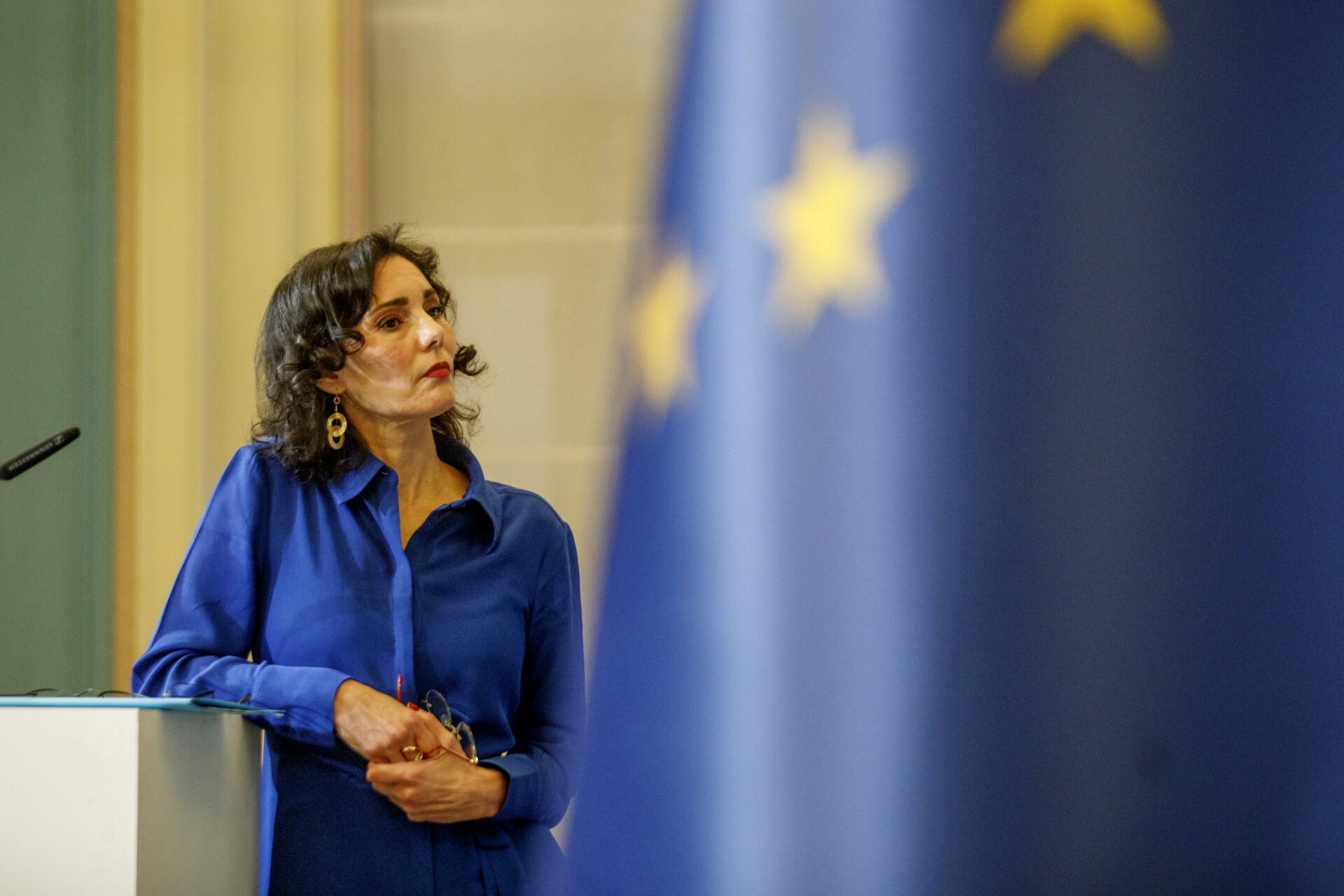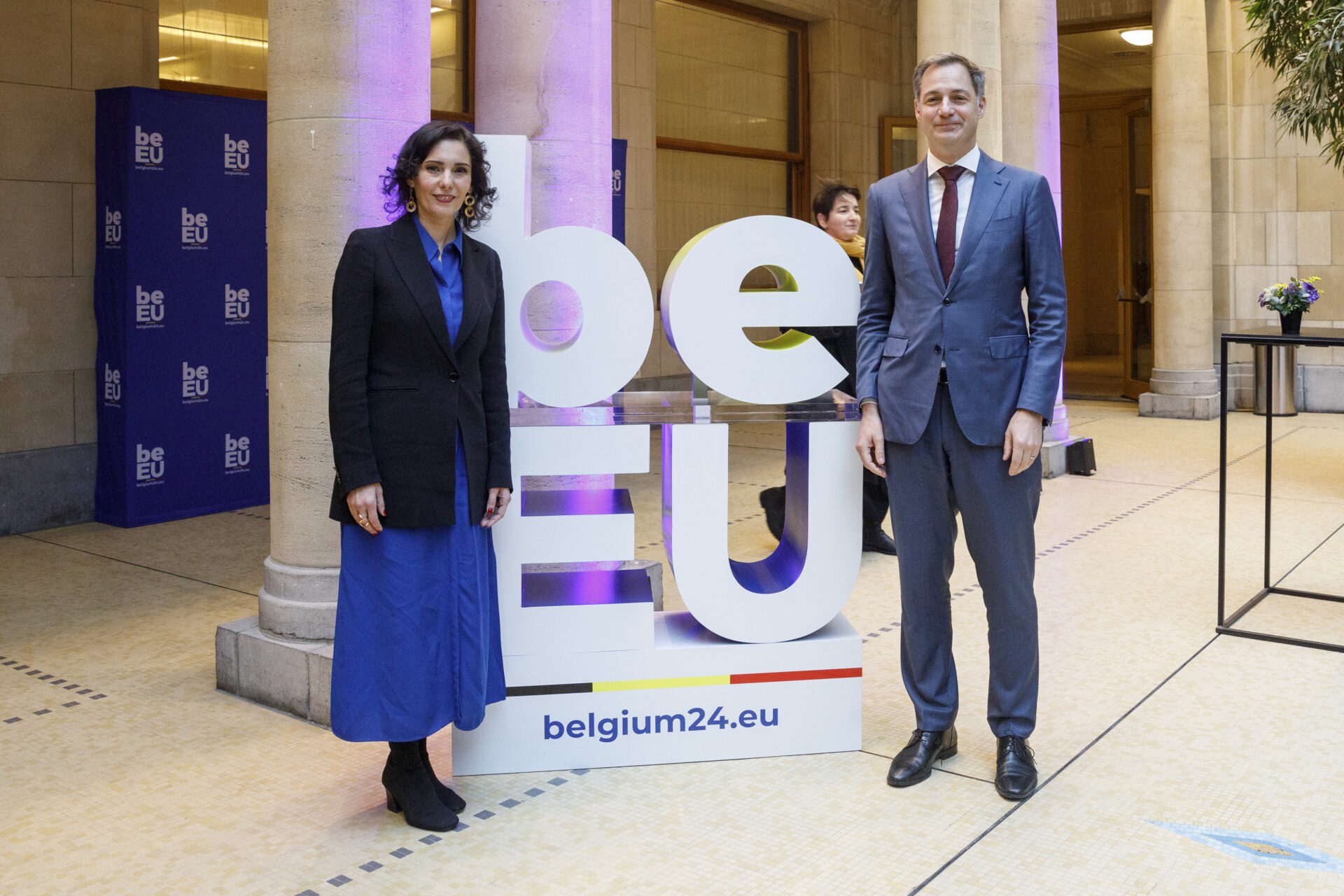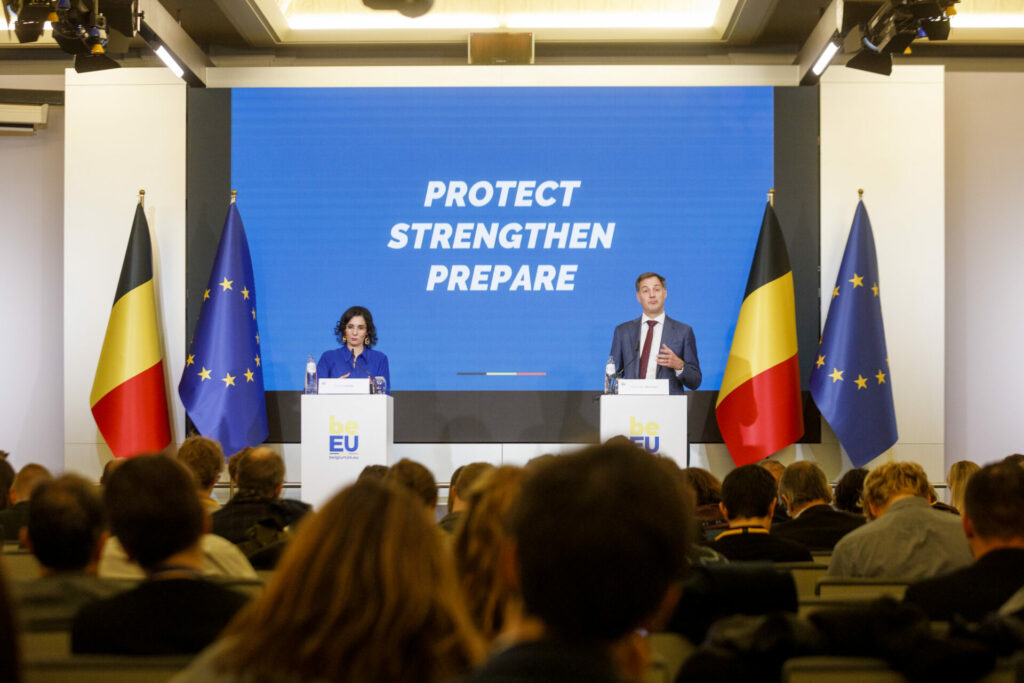Belgium presented on Friday its final six priorities for the upcoming Presidency of the Council of the European Union, which begins on 1 January 2024, while preparing for the turbulent times ahead.
At a press conference in Brussels, Prime Minister Alexander De Croo and Foreign Minister Hadja Lahbib made the case for Belgium’s unique and close relationship with the EU to drive its Presidency – it was the first country to hold the role in 1958.
"Belgium has the European Union in its DNA. If there is one country that embodies the diversity and the dynamism of the European Union today, I think it is Belgium," the Prime Minister said.
Rising to the helm of the Presidency for the first time since 2010, De Croo acknowledged the challenges the Union is facing after a difficult period characterised by the Covid-19 pandemic, the economic and energy crisis and the return of war.
The Belgian Prime Minister noted these successive crises had tested the Union, but stressed he believes that citizens are looking at the EU for certainty and perspective, and underlined this has been the guiding light for setting Belgium’s priorities.
"The past years have been a rude awakening. We have a horrific war in the European continent, we have a terrible war in the Middle East. And if we look at the atrocities committed by human beings inflicted on each other… we know we have a role to play."
With the elections planned for June 2024 in both the European Union and Belgium, the Presidency will focus on strengthening citizen engagement with the EU – a much courted ideal which the EU often fails to translate into practice. Special focus will be given to those aged 16 and over, who are allowed to vote in Belgium at the European Elections in June.
What are the focus areas?
Coming at the end of the 2019-2024 electoral cycle, Belgium is in an unusual position as it will need to close the 150 or so files which are still on the table. On Friday, Foreign Minister Hadja Lahbib unveiled, in more detail, the six thematic priorities.
Belgium's 2024 priorities will be the promotion of the rule of law and democracy; strengthening economic competitiveness; pursuing the green transition; reinforcing the social agenda; protecting borders and people; and promoting a global Europe.

Foreign Minister Hadja Lahbib during the presentation of the official program of the upcoming Belgian Presidency of the European Union, in Brussels, Friday 08 December 2023. Credit: Belga / Hatim Kaghat
The themes will be worked on in tandem with a continued commitment to Ukraine, at a time when the Middle East has diverted international attention away from the Russian invasion of Ukraine – something which Prime Minister De Croo rejected.
"I don’t agree that support for Ukraine is lost," he said, while also downplaying the prospect of Hungary vetoing Ukraine’s EU membership talks. "There is a summit next week, which will be tense, but we have had this before. We have never failed."
With Hungary taking over the Presidency from Belgium in July 2024, both De Croo and Lahbib rejected any notion that there will be challenges in the Presidency transition, adding that the Hungarian Presidency will be like any other .
"We will have hearings on Article 7 during our presidency," Lahbib said, referencing the mechanism which was opened against Hungary and could see their membership rights suspended."That is not a problem, we will continue our job," she said.
Economy versus climate
Having made economic competitiveness a top priority alongside the green transition, De Croo pushed back on the idea that he had previously said he wanted a "pause on all non-climate environment policy."
He specified his focus on growth and economic competitiveness was complementary to the EU green transition, while also boosting industrial output and innovation in Europe. He referred to a planned reform of the internal market to this end.

Credit: Belga / Hatim Kaghat
"We are top of the world on innovation, but the industrialisation of that innovation is not happening in Europe because of a complexity in our single market and very often the financing is in other places," De Croo said.
He wants industry to be a partner in the green transition, to help prosperity and job creation. "The moment industry leaves the European continent, that is a bad thing around the world, because it will go elsewhere where regulations are less stringent."
When addressing the threat of the far-right in European elections, the Belgian Prime Minister claimed he wants "more results, less talking, and we will see what happens in the elections."
Friday also marked the launch of the Presidency website and logo. De Croo explained the logo represents "Belgium at a crossroads," symbolised by an invisible cross in the logo, with Belgium in yellow – the colour which unites the country and features in all regional flags.
The emphasis of the text is on the EU, with the font for Belgium being smaller and less bold. "It underscores our priority, to deliver for Europe," the Belgian Prime Minister said.

